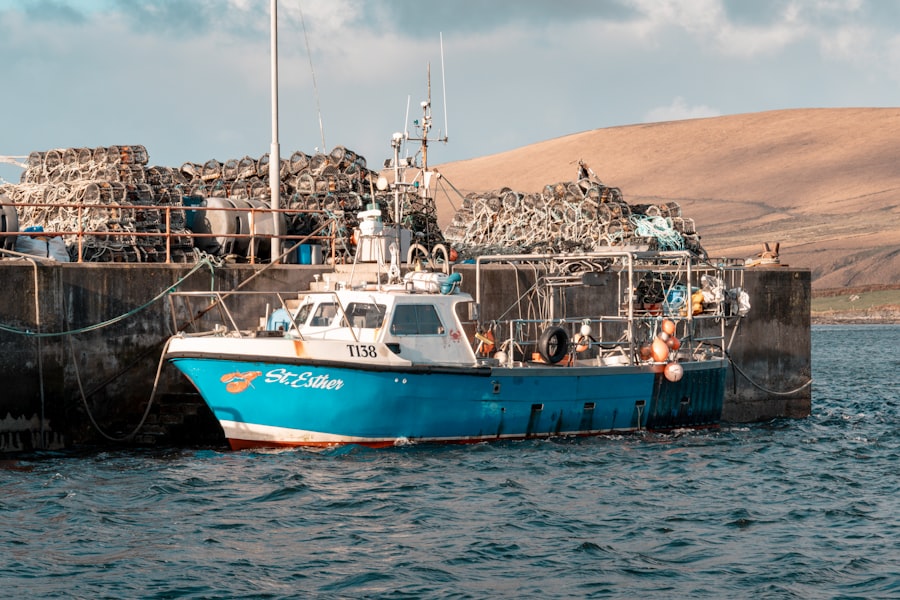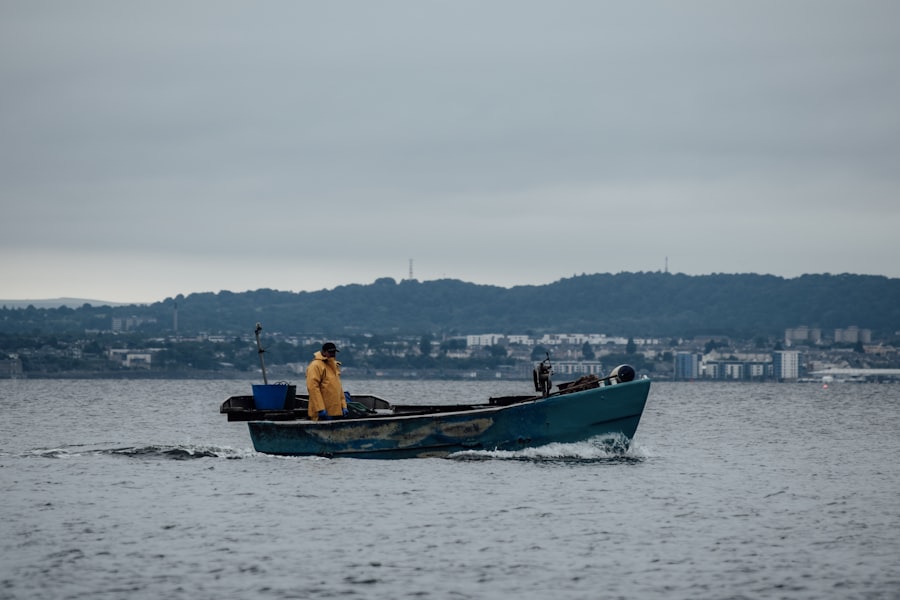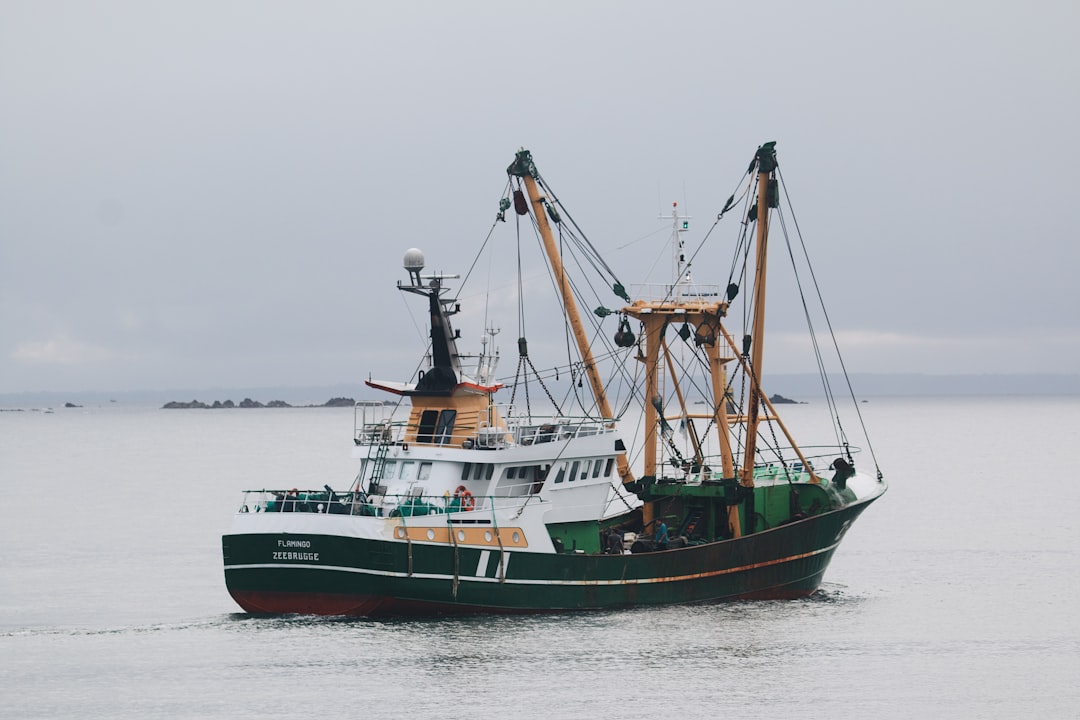Fisheries observers play a crucial role in the sustainable management of marine resources. They serve as independent monitors on fishing vessels, collecting vital data that informs fisheries management decisions. By observing fishing practices, recording catch data, and assessing the health of fish stocks, these professionals contribute significantly to the conservation of marine ecosystems.
Their work helps ensure that fishing activities are conducted responsibly, balancing economic interests with environmental sustainability. This oversight is essential in an era where overfishing and habitat degradation threaten the delicate balance of marine life. Moreover, fisheries observers act as a bridge between regulatory bodies and the fishing industry.
Their presence on board vessels fosters transparency and accountability, which are critical for effective fisheries management. By providing unbiased data, observers help to verify compliance with fishing regulations and quotas. This not only aids in the protection of fish populations but also supports the livelihoods of those who depend on fishing for their income.
The importance of fisheries observers cannot be overstated; they are integral to the health of our oceans and the communities that rely on them.
Key Takeaways
- Fisheries observers play a crucial role in monitoring and ensuring sustainable fishing practices.
- Observers face significant risks including harassment, intimidation, and safety hazards at sea.
- Comprehensive training, certification, and safety protocols are essential for observer preparedness.
- Effective communication and emergency response plans enhance observer safety during operations.
- Legal protections, mental health support, and collaboration with crews are vital for observer well-being and incident management.
Risks and Challenges Faced by Fisheries Observers
The role of fisheries observers is fraught with risks and challenges that can impact their safety and effectiveness. One of the most significant dangers they face is the potential for hostile interactions with crew members on fishing vessels. Observers may encounter resistance or even aggression from fishermen who feel threatened by their presence or who are engaged in illegal practices.
This hostility can create a tense working environment, making it difficult for observers to perform their duties effectively. The fear of retaliation can also deter observers from reporting violations, undermining the very purpose of their role. In addition to interpersonal conflicts, fisheries observers often work in hazardous conditions at sea.
They must contend with unpredictable weather, rough seas, and the inherent dangers associated with working on large vessels. The physical demands of the job can be taxing, requiring observers to be in good health and possess a certain level of physical fitness. Furthermore, the isolation of being at sea for extended periods can take a toll on their mental well-being.
These challenges highlight the need for robust support systems and safety measures to protect fisheries observers as they carry out their essential work.
Training and Certification for Fisheries Observers

To effectively fulfill their responsibilities, fisheries observers undergo rigorous training and certification processes. This training equips them with the necessary skills to collect data accurately, understand fishing regulations, and navigate the complexities of working aboard fishing vessels. Programs often include instruction on species identification, data collection methodologies, and safety protocols.
Additionally, observers learn about the legal frameworks governing fisheries management, ensuring they are well-versed in the regulations they are tasked with monitoring. Certification is a critical component of this training process, as it validates an observer’s competence and readiness to work in the field. Various organizations offer certification programs that adhere to industry standards, ensuring that observers are adequately prepared for the challenges they will face at sea.
Continuous education is also emphasized, as fisheries management practices and regulations evolve over time. By investing in comprehensive training and certification, the fisheries observer program enhances the quality of data collected and promotes a culture of professionalism within the industry.
Safety Equipment and Protocols for Fisheries Observers
| Safety Equipment | Description | Usage Protocol | Frequency of Inspection | Compliance Standard |
|---|---|---|---|---|
| Personal Flotation Device (PFD) | Life jacket designed to keep the wearer afloat in water | Must be worn at all times on deck | Before each shift | International Maritime Organization (IMO) SOLAS |
| Emergency Position Indicating Radio Beacon (EPIRB) | Device that transmits distress signals to rescue authorities | Test monthly and activate only in emergencies | Monthly | IMO and local maritime regulations |
| First Aid Kit | Contains medical supplies for minor injuries | Accessible at all times; restock after use | Monthly | Occupational Safety and Health Administration (OSHA) |
| Survival Suit | Protective suit to prevent hypothermia in cold water | Wear during emergency drills and in cold weather | Annually | IMO and local maritime safety standards |
| Fire Extinguisher | Device to extinguish small fires onboard | Check pressure gauge and accessibility regularly | Monthly | National Fire Protection Association (NFPA) |
| Communication Radio | Handheld or fixed radio for emergency and routine communication | Test functionality before departure and daily | Daily | Federal Communications Commission (FCC) |
| Safety Training | Training on emergency procedures and equipment use | Mandatory before deployment and refresher annually | Annually | International Labour Organization (ILO) guidelines |
| Man Overboard Recovery Equipment | Equipment such as lifebuoys and retrieval lines | Ensure equipment is ready and accessible at all times | Weekly | IMO and local maritime safety regulations |
Safety is paramount for fisheries observers, who must be equipped with appropriate gear and adhere to established protocols while working at sea. Personal protective equipment (PPE) is essential for safeguarding observers against potential hazards. This includes items such as life jackets, helmets, gloves, and waterproof clothing designed to withstand harsh marine conditions.
The use of high-visibility gear is also critical, ensuring that observers are easily seen by crew members and other vessels in busy fishing areas. In addition to PPE, safety protocols play a vital role in minimizing risks during fieldwork. Observers are trained to follow specific procedures when boarding vessels, conducting observations, and handling equipment.
Regular safety drills are conducted to prepare them for emergencies such as man-overboard situations or severe weather events. By fostering a culture of safety awareness and preparedness, fisheries observer programs can significantly reduce the likelihood of accidents and injuries while enhancing the overall effectiveness of their monitoring efforts.
Communication and Emergency Response Plans for Fisheries Observers
Effective communication is essential for fisheries observers, both in terms of coordinating with vessel crews and responding to emergencies. Observers must establish clear lines of communication with crew members to facilitate data collection and ensure compliance with regulations. This often involves using radios or other communication devices to relay information about catch data or any observed violations.
Building rapport with crew members can enhance cooperation and create a more conducive working environment. In addition to routine communication, fisheries observers must be prepared for emergencies by having well-defined response plans in place. These plans outline procedures for various scenarios, including medical emergencies, equipment failures, or severe weather conditions.
Observers are trained to recognize signs of distress among crew members and to take appropriate action when necessary. By having comprehensive communication and emergency response plans, fisheries observer programs can enhance safety and ensure that observers are equipped to handle unexpected situations effectively.
Collaboration with Fishing Vessels and Crews

Collaboration between fisheries observers and fishing vessel crews is essential for successful monitoring and data collection. Establishing a cooperative relationship can lead to improved compliance with regulations and a more positive working atmosphere on board. Observers often engage in discussions with crew members about their observations and findings, fostering an environment of mutual respect and understanding.
This collaboration not only enhances data accuracy but also encourages fishermen to adopt sustainable practices. Furthermore, effective collaboration can help bridge the gap between regulatory agencies and the fishing industry. By working closely with crews, observers can provide valuable insights into the challenges faced by fishermen while also advocating for responsible fishing practices.
This two-way communication can lead to more informed decision-making by regulatory bodies, ultimately benefiting both fish populations and the livelihoods of those who depend on them. The success of fisheries management relies heavily on this collaborative approach.
Addressing Harassment and Intimidation of Fisheries Observers
Harassment and intimidation are significant issues that fisheries observers may encounter while performing their duties at sea. Such behavior can stem from crew members who feel threatened by an observer’s presence or who are engaged in illegal activities that they wish to conceal. It is crucial for observer programs to implement measures that address these challenges effectively.
This includes establishing clear reporting mechanisms for incidents of harassment and providing support for affected observers. Creating a culture of respect aboard fishing vessels is essential for mitigating harassment issues. Training programs should emphasize the importance of professionalism among crew members and outline acceptable behavior towards observers.
By prioritizing the safety and well-being of fisheries observers, the industry can foster an environment where they can perform their duties without fear of intimidation.
Mental Health and Well-being of Fisheries Observers
The mental health and well-being of fisheries observers are critical considerations in their overall effectiveness and job satisfaction. Working at sea can be isolating and stressful, leading to feelings of loneliness or anxiety among observers. The demanding nature of their work, combined with potential conflicts with crew members, can take a toll on their mental health over time.
It is essential for observer programs to recognize these challenges and provide resources to support their mental well-being. Implementing mental health support systems is vital for addressing these concerns. This may include access to counseling services or peer support networks where observers can share their experiences and coping strategies.
Regular check-ins with supervisors can also help identify any signs of distress early on, allowing for timely intervention if needed. By prioritizing mental health initiatives within fisheries observer programs, organizations can enhance job satisfaction and retention while ensuring that observers remain effective in their roles.
Legal Protections and Rights for Fisheries Observers
Fisheries observers have specific legal protections and rights that safeguard them while performing their duties at sea.
Understanding these rights is crucial for observers as it empowers them to report violations without fear of repercussions.
Regulatory agencies must ensure that these protections are clearly communicated to all stakeholders involved in fisheries management. In addition to protections against harassment, legal frameworks often outline the responsibilities of fishing vessel operators towards observers. This includes providing a safe working environment, access to necessary equipment, and adherence to established protocols during observations.
By reinforcing these legal protections, observer programs can create a safer atmosphere where fisheries observers can focus on their critical work without undue stress or fear.
Reporting and Investigating Incidents Involving Fisheries Observers
Reporting incidents involving fisheries observers is a vital process that ensures accountability within the industry. When an observer encounters harassment or any other form of misconduct while at sea, it is essential that there are clear procedures in place for reporting these incidents promptly. Observer programs should establish confidential reporting mechanisms that allow individuals to voice their concerns without fear of retaliation.
Once an incident is reported, thorough investigations must be conducted to determine the facts surrounding the situation. This process should involve gathering statements from all parties involved and reviewing any relevant documentation or evidence. Regulatory agencies play a crucial role in overseeing these investigations to ensure impartiality and fairness throughout the process.
By taking incidents seriously and addressing them appropriately, observer programs can foster a culture of accountability that ultimately benefits both observers and the fishing industry as a whole.
Future Innovations and Improvements for Fisheries Observer Safety
As the role of fisheries observers continues to evolve, there is significant potential for future innovations aimed at enhancing their safety and effectiveness at sea. Technological advancements offer exciting possibilities for improving data collection methods and monitoring practices. For instance, the integration of remote sensing technologies could allow for real-time monitoring of fishing activities without requiring an observer’s physical presence on board every vessel.
Additionally, advancements in communication technology could facilitate better coordination between observers and regulatory agencies while at sea. Enhanced communication tools could provide observers with immediate access to support resources or emergency assistance when needed. As the industry embraces these innovations, it is essential to prioritize safety measures that protect fisheries observers while enabling them to carry out their critical work effectively.
In conclusion, fisheries observers play an indispensable role in ensuring sustainable fishing practices while facing numerous challenges along the way. By addressing issues related to safety, training, collaboration, mental health, legal protections, reporting mechanisms, and future innovations, stakeholders can create an environment where fisheries observers thrive in their vital roles within marine resource management.
Fisheries observer safety is a critical issue that has garnered attention in recent years, particularly as observers play a vital role in monitoring fish stocks and ensuring sustainable practices. For a deeper understanding of the challenges and concerns surrounding observer safety, you can read a related article that discusses various aspects of this topic. Check it out here: Fisheries Observer Safety Concerns.
WATCH THIS! The $10 Billion Lie: Why Your “Dolphin-Safe” Tuna Isn’t Safe
FAQs
What is the role of a fisheries observer?
Fisheries observers are trained personnel who collect data on commercial fishing activities to ensure compliance with fishing regulations, monitor fish stocks, and assess the impact of fishing on marine ecosystems.
Why are fisheries observer safety concerns important?
Observer safety is critical because observers often work in remote, hazardous marine environments, facing risks such as rough seas, long hours, isolation, and potential conflicts with fishing crews, which can compromise their well-being and the integrity of data collection.
What are common safety risks faced by fisheries observers?
Common risks include physical injury from fishing equipment, harsh weather conditions, fatigue, harassment or intimidation by crew members, lack of proper safety training, and inadequate emergency response protocols.
How do fisheries management organizations address observer safety?
Organizations implement safety protocols such as mandatory safety training, provision of personal protective equipment, clear reporting mechanisms for harassment, emergency communication devices, and policies to ensure observers have safe working conditions onboard vessels.
Are there international guidelines for fisheries observer safety?
Yes, international bodies like the Food and Agriculture Organization (FAO) provide guidelines and best practices to promote observer safety, including recommendations on training, working conditions, and legal protections.
What measures can be taken to improve fisheries observer safety?
Measures include enhancing observer training, improving vessel safety standards, establishing clear anti-harassment policies, ensuring observers have access to emergency support, and fostering cooperation between observers, vessel operators, and regulatory agencies.
How does observer safety impact fisheries data quality?
Observer safety directly affects data quality; unsafe conditions can lead to incomplete or inaccurate data collection if observers are unable to perform their duties effectively or if they leave assignments prematurely due to safety concerns.
What legal protections exist for fisheries observers?
Legal protections vary by country but may include laws against harassment and assault, regulations mandating safe working conditions, and policies ensuring observers’ rights to report unsafe practices without retaliation.
Can technology help improve fisheries observer safety?
Yes, technologies such as electronic monitoring systems, satellite communication devices, and safety alarms can supplement human observers, enhance safety, and provide additional data verification methods.
What should an observer do if they feel unsafe onboard a fishing vessel?
Observers should follow established protocols, report concerns to their employer or relevant authorities, use emergency communication devices if necessary, and prioritize their personal safety by seeking assistance or evacuation if the situation warrants.
